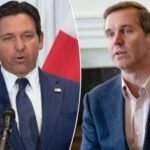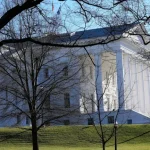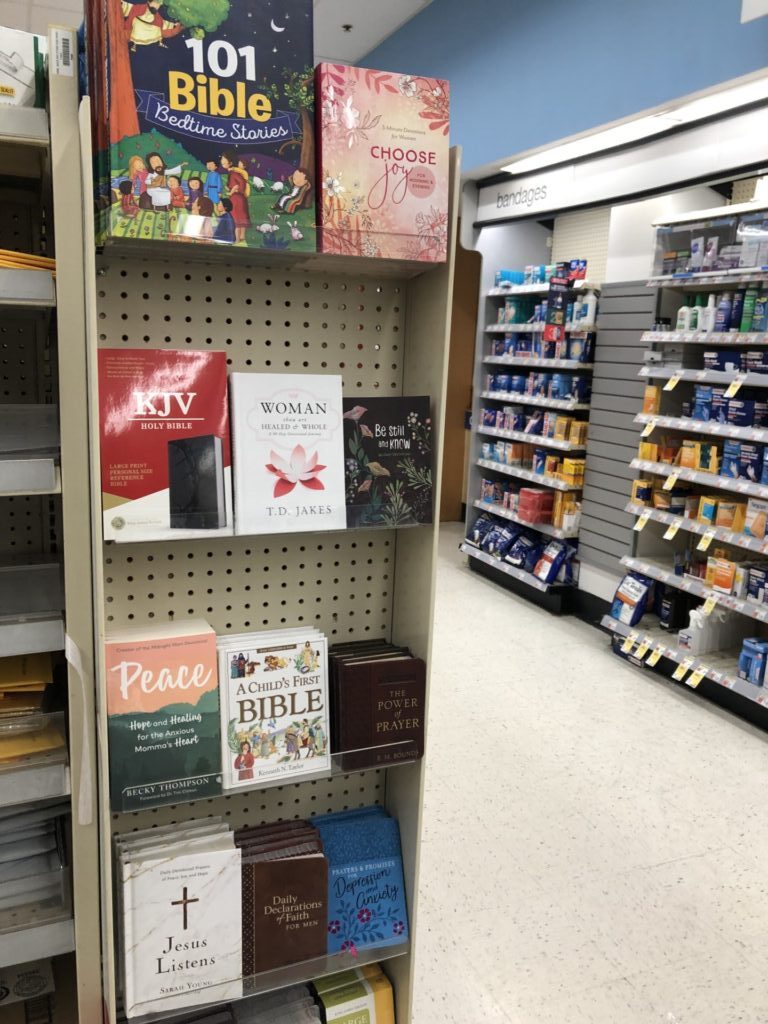
The Treasury Department, on behalf of federal law enforcement after January 6, 2021, asked banks to snoop through customers’ transactions for signs of “extremism,” such as purchases of “small arms” or from gun retailers Dick’s Sporting Goods, Bass Pro Shop, or Cabela’s, according to House Judiciary Committee Chairman Rep. Jim Jordan (R-OH).
Jordan revealed the secret requests on Thursday in a letter to the former Director of the Treasury Department’s office of Stakeholder Integration and Engagement in the Strategic Operations Division of the Financial Crimes Enforcement Network (FinCEN) Noah Bishoff.
We now know the federal government flagged terms like “MAGA” and “TRUMP,” to financial institutions if Americans completed transactions using those terms.
What was also flagged? If you bought a religious text, like a BIBLE, or shopped at Bass Pro Shop. pic.twitter.com/jjRaVNItWz
— Rep. Jim Jordan (@Jim_Jordan) January 17, 2024
🚨 #BREAKING: Federal Government Flagged Transactions Using Terms like “MAGA” and “TRUMP” for Financial Institutions
Individuals who shopped at stores like Cabela’s, Dick’s Sporting Goods, or purchased religious texts like a bible, may also have had their transactions flagged. pic.twitter.com/zOJzfljuAG
— Weaponization Committee (@Weaponization) January 17, 2024
Jordan’s letter, which asked Bishoff to appear for a transcribed interview, said, “This kind of pervasive financial surveillance, carried out in coordination with and at the request of federal law enforcement, into Americans’ private transactions is alarming and raises serious doubts about FinCEN’s respect for fundamental civil liberties.”
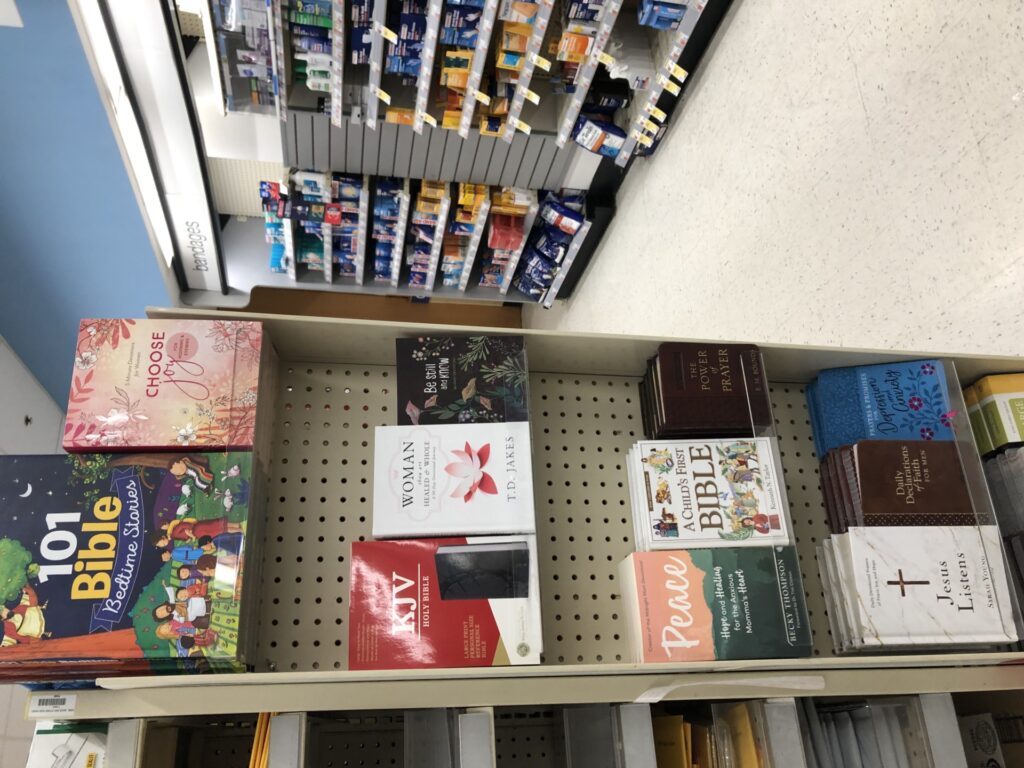
Display of religious books for sale at Walgreens store, Queens, New York. (Lindsey Nicholson/UCG/Universal Images Group via Getty)
The secret requests were found as part of Judiciary Committee and Judiciary Select Subcommittee on the Weaponization of the Federal Government oversight on federal law enforcement’s receipt of information about American citizens without legal process.
Jordan said in the letter that the Committee and Select Subcommittee obtained documents indicating that following January 6, 2021, FinCEN distributed materials to banks that outlined the “Typologies” of “various persons of interest” and provided financial institutions with suggested search terms and Merchant Category Codes (MCCs) for identifying transactions on behalf of federal law enforcement.
Jordan said the materials included a document recommending the use of generic terms like “TRUMP” and “MAGA” to “Search Zelle payment messages,” as well as a “prior FinCEN analysis” of “Lone Actor/Homegrown Violent Extremism Indicators.”
According to the analysis, FinCEN warned financial institutions of “extremism” indicators that include “Transportation charges, such as bus tickets, rental cars, or plane tickets. for travel to areas with no apparent purpose,” or the purchase of books — including religious texts — and subscriptions to other media containing extremist views.
“In other words, FinCEN urged large financial institutions to comb through the private transactions of their customers for suspicious charges on the basis of protected political and religious expression,” Jordan wrote.
Jordan said FinCEN also distributed slides prepared by one bank explaining how other banks could use MCCs to detect customers whose transactions may reflect “potential active shooters, [and] who may include dangerous International Terrorists / Domestic Terrorists / Homegrown Violent Extremists (‘Lone Wolves’).”
The slides instructed banks to look for transactions using certain MCC codes such as “3484: Small Arms,” “5091: Sporting and Recreational Goods and Supplies,” and the keywords “Cabela’s,” and “Dick’s Sporting Goods,” among several others, he said.
The letter included a slide listing a number of gun retailers.
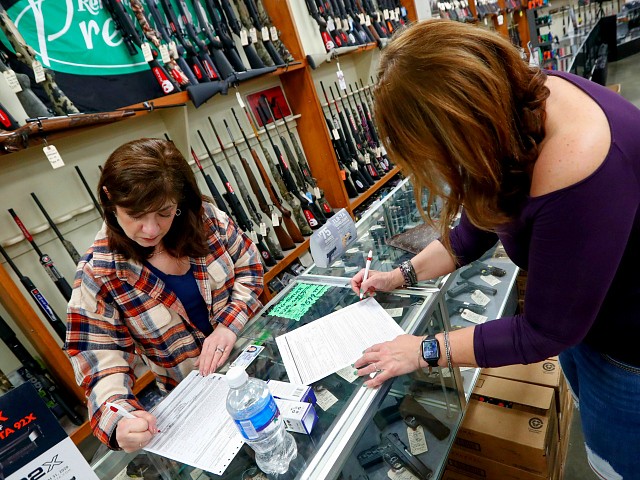
Andrea Schry, right, fills out the buyer part of legal forms to buy a handgun as shop worker Missy Morosky fills out the vendor’s parts after Dukes Sport Shop reopened, Wednesday, March 25, 2020, in New Castle, Pa. (Keith Srakocic/AP)
“Despite these transactions having no apparent criminal nexus and, in fact, relate to Americans exercising their Second Amendment rights— FinCEN seems to have adopted a characterization of these Americans as potential threat actors,” he said.
In an interview with Fox News’s Sean Hannity Jordan called it “financial surveillance.”
“In the last year saw we’ve exposed the censorship, where you had big government, big tech, big media, big academia working to censor Americans,” Jordan said. “Now we have financial surveillance, where it’s big government working with big banks, big corporations to surveil — to spy on Americans.”
“And so it was big banks, looking and searching private transactions using key terms at the suggestion of the federal government to find out what you’re buying, what you’re spending your money on,” he added. “Scary stuff, all, it looks like, without any warrant, without any legal process.”
“It’s scary stuff. It’s financial surveillance of the American people,” he stated.
RELATED — WATCH: Reporter Asks Psaki How “This Administration” Defines “Domestic Terrorist”
The White House / YouTube


